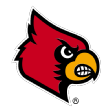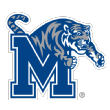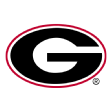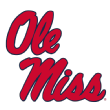The college basketball coaching carousel is essentially done spinning, and it was relatively quiet. Most of the activity among the high-major leagues was done early in the process, and the biggest job -- Louisville -- opened last fall. That doesn't mean there aren't some interesting forthcoming situations.
Recruiting is the lifeblood of a program, and that will be one of the first things a new head coach is judged on, given the early signing period next fall comes before he has even coached a handful of games. As we exit the April live periods, what are the biggest recruiting questions facing each of the high-profile new coaches?
 Louisville: Can Chris Mack bring the Cardinals' brand back toward the top tier of college basketball?
Louisville: Can Chris Mack bring the Cardinals' brand back toward the top tier of college basketball?
Louisville has long been considered one of the best programs in the nation, and its recruiting success demonstrated that. The Cardinals weren't exactly competing with the blue bloods in the class rankings, but they were getting their fair share of highly ranked prospects. Since 2007, when the ESPN recruiting database began, they've landed at least one ESPN 100 prospect in every class but one (2010), and picked up 24 ESPN 100 prospects total. Moreover, in Rick Pitino's final five recruiting classes at Louisville, the Cardinals landed four five-star prospects and 15 ESPN 100 prospects. Can that continue under the cloud Pitino left behind? It's hard to take anything from the 2018 class, since Mack and his staff got such a late start, but the 2019 class will be key in terms of watching how negative recruiting affects Louisville's efforts.
 Memphis: How much pull will Penny Hardaway have with elite prospects?
Memphis: How much pull will Penny Hardaway have with elite prospects?
Part of the reason Memphis fired Tubby Smith to hire Hardaway was the latter's relationships with high-level recruits, from his time with the Team Penny AAU program and at Memphis East High School. How will that translate to the recruiting trail? Hardaway landed a few Memphis products in the 2018 class -- including four-star point guards Alex Lomax, who played for Hardaway, and Tyler Harris -- but the litmus test will come in the 2019 class. There were three five-star prospects from Hardaway's programs: James Wiseman, D.J. Jeffries and Chandler Lawson. Jeffries committed to Kentucky before Hardaway was hired at Memphis, and Lawson's two brothers started their careers at Memphis before transferring to Kansas. So that leaves Wiseman. It's essentially a Kentucky vs. Memphis battle, with John Calipari's Wildcats the favorite right now. But Hardaway has time to make up ground to get a player who transferred to East High just to play for him. Hardaway also has Memphis involved with plenty of other high-level prospects the Tigers didn't have a prayer of getting before he came aboard.
 Georgia: Will Tom Crean be able to keep in-state kids home for college?
Georgia: Will Tom Crean be able to keep in-state kids home for college?
When five-star 2019 guard Ashton Hagans originally committed to Georgia, he was the first five-star prospect to pick the Bulldogs since the database began in 2007 and the first top-ranked Georgia prospect to stay home for college since Kentavious Caldwell-Pope in 2011. Hagans decommitted a couple weeks before Mark Fox was fired, eventually committing to Kentucky, highlighting perhaps the biggest issue facing Crean on the recruiting trail. He will have to find a way to keep in-state prospects home. Georgia is one of the most fertile states for high-major recruits, and the Bulldogs just haven't been getting their fair share. Just look at the past four classes: Jaylen Brown (Cal), Malik Beasley (Florida State), Kobi Simmons (Arizona), Alterique Gilbert (UConn), Wendell Carter (Duke), Collin Sexton (Alabama), M.J. Walker (Florida State), E.J. Montgomery (Kentucky) and Reggie Perry (Mississippi State). And that's just the top two or three guys from every class. Crean will need to change that.
 Pittsburgh: Will Jeff Capel's biggest strength at Duke -- recruiting high-level prospects -- translate to Pitt?
Pittsburgh: Will Jeff Capel's biggest strength at Duke -- recruiting high-level prospects -- translate to Pitt?
While Capel has plenty of successful head -coaching experience at VCU and Oklahoma, his reputation over the past few years has been built due to his recruiting prowess at Duke. He has been the point man on many of the prospects the Blue Devils have reeled in, leading to the top-ranked recruiting class in four of the past five years. Of course, it helps when you're recruiting for Duke and Mike Krzyzewski. The Blue Devils are one of the blue bloods of the sport and got highly touted prospects before Capel, and will get them moving forward. Pittsburgh is not in that class. So how will Capel translate his recruiting ability to the Panthers? Will he continue going after top-tier prospects? After two live periods and some in-home visits, it's clear Capel isn't going to just abandon top-50-caliber prospects, but he's also going after guys Pitt will generally have a better chance of getting. It might not mean top-five classes, but Capel's recruiting ability will upgrade the talent at Pittsburgh.
 Connecticut: Can Dan Hurley attract potential pros to the Huskies?
Connecticut: Can Dan Hurley attract potential pros to the Huskies?
After Kevin Ollie took over for Jim Calhoun, the recruiting transition was fairly seamless. There were a few bumps after the change, but the Huskies won the national title in 2014 and continued to land ESPN 100 prospects. It peaked in 2016, when Ollie brought in four ESPN 100 prospects, including high-level point guard Alterique Gilbert. Since then, the Huskies haven't landed a single top-100 player and have relied on transfers and under-recruited players. It didn't exactly work out for Ollie. So what's next for Hurley? Does UConn still have the brand name to attract elite prospects? There are the recent struggles, the move to the American Athletic Conference and the location. Hurley did put together a terrific staff, bringing Tom Moore with him from Rhode Island and adding Kimani Young and Kenya Hunter. Hurley should be able to recruit up and down the mid-Atlantic and Northeast.
 Ole Miss: Is Kermit Davis planning to compete with the top of the SEC for recruits?
Ole Miss: Is Kermit Davis planning to compete with the top of the SEC for recruits?
The last ESPN 100 prospect to commit to Ole Miss was Demarco Cox, who was also a heavily recruited football player, back in 2010. Despite that, Andy Kennedy was able to reach two NCAA tournaments and win 19 or more games every season from 2010-11 through 2016-17. Ole Miss simply hasn't been a place for elite-level prospects to consider in recent recruiting history. Davis can embrace that and continue to recruit transfers, under-the-radar prospects and junior college players, an approach that brought him success at Middle Tennessee. The SEC is filled with sharks on the recruiting trail, from Calipari to Avery Johnson to Bruce Pearl to Ben Howland and on down the line. Davis likely won't be able to compete with those guys for the upper-echelon recruits, but that's not anything close to a death sentence for Ole Miss. Kennedy and Davis have both had success without them.
 Xavier: Can Travis Steele pick up right where his predecessors left off?
Xavier: Can Travis Steele pick up right where his predecessors left off?
The recent lineage of Xavier head coaches is strong: Since Pete Gillen was hired in 1985, the Musketeers went from Gillen to Skip Prosser to Thad Matta to Sean Miller to Mack. Not bad, right? Well, now it's Steele's turn. He has been with the Musketeers for a decade and also spent a couple seasons at Indiana. Mack had plenty of success on the recruiting trail, landing multiple ESPN 100 prospects in three of the past four years. Steele played an integral role in those classes, so there shouldn't be too much of a drop-off in that sense. He's well connected in the Midwest, bringing in the likes of Trevon Bluiett, J.P. Macura and others. Since becoming the head coach, Steele landed a trio of transfers. Moving forward, he should fare well in the high school market, bringing in assistants Jonas Hayes (Georgia) and Ben Johnson (Minnesota) to expand the Musketeers' market.
